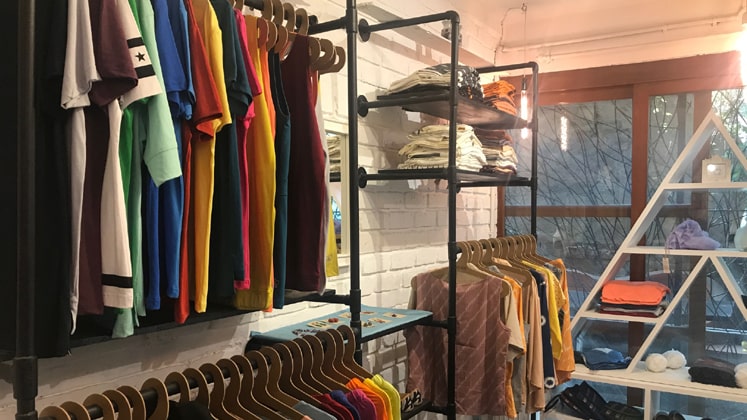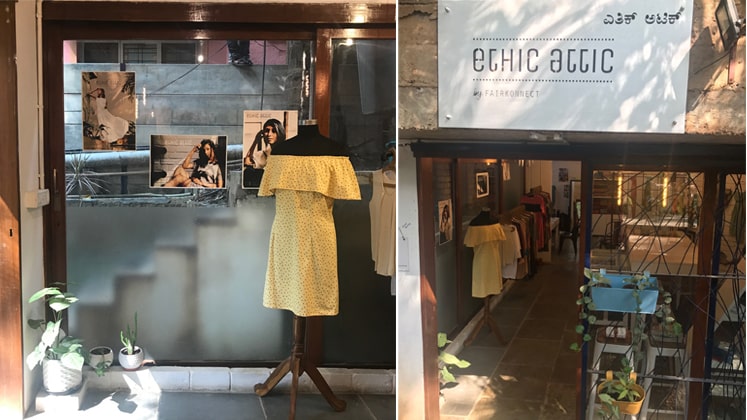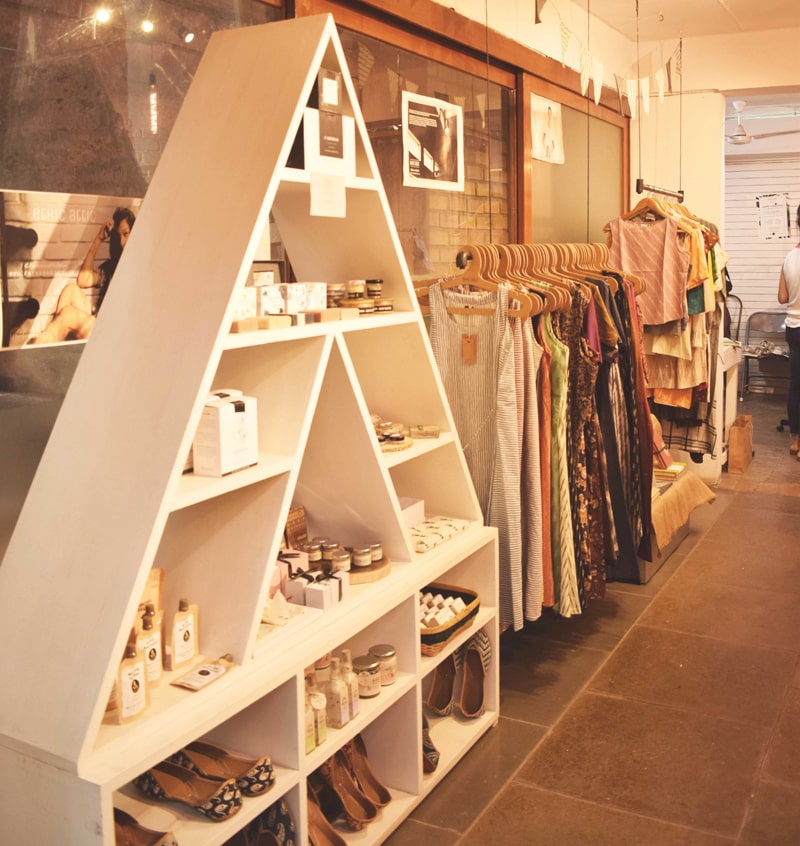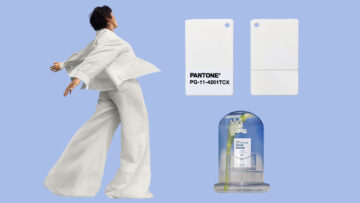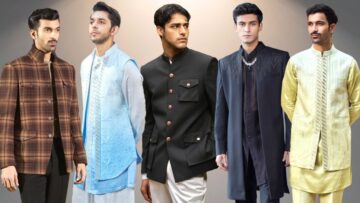
Founders of Ethic Attic, Rema Sivaram and Pradeep Krishnappa mention that during their early days with the brand, they would often have customer walk in and ask the meaning of ‘Slow Fashion’ or ‘Sustainability’. Having such conversation and sparking new thoughts amongst the customers has been the most rewarding experience, they say. Over the years, they have seen the sustainability awareness grow and now Ethic Attic banks on a conscious customer base. Talking to the founders unearths the varied facets of selling ethical.
Ethic Attic, as the name suggests, is all about ethical living and consumption. The parent company for Ethic Attic was founded on the principles of Fair Trade. Ethic Attic focuses on elevating the Fair Trade practices amongst artisans, getting them market ready and connecting them with Fair Trade markets. Starting Ethic Attic was an organic growth, Rema Sivaram and Pradeep Krishnappa admit. They realised the gap in the retail market for slow fashion and sustainable products and brought forth the concept of Ethic Attic.
“We decided to embrace the Sustainable Development Goals as well and that’s how Ethic Attic was born. While Fair Trade principles ensure you are friendly to the people involved in the process, SDGs ensure the products are friendly to the planet. Our products are all made friendly to the planet and people. All our products are attached to one of the SDGs and we are mighty proud to be the only Fair Trade and Sustainable concept store in Bengaluru. We have collaborated with over 30 brands from India across products like apparels, jewellery, bags, zero waste products, books, homeware and much more. Our current collection focuses on upcycled fabrics which otherwise would end up in landfill. All these garments are produced by women trained under our social initiative project called Project Hennu. The collection also features garments made out of Organic Cotton, Aloe Vera and Lotus Fabrics. All these are also dyed using natural dyes. All our collections feature only sustainable fabrics and fair trade practices. They are priced in the range of Rs. 2000 and above,” Rema highlights.
Brand reach
Ethic Attic’s retail outlet is located in Bengaluru, India. They have an online store – ethicattic.com through which the brand delivers all across India. “Our vision is to become a global brand that believes in Fair Trade and propagates and connects all of them amongst the buyers and producers. With our focus on ethical, fair and transparent trade practices, we want to take the Fair Trade movement a notch further. Ethic Attic works in three major areas with respect to Fair Trade and ethical practices in trade. We help buyers’ source genuine craft products directly from artisans, apart from helping in custom development. We consult with buyers and artisans to smoothen their process, communication and transactions. We regularly attend global networking events and trade shows to identify new markets and take the artisan produces worldwide. We also curate Fair Trade Fairs/Events to promote Fair Trade amongst mainstream retail/wholesale markets,” Pradeep notes.
Also Read: Maikai wins consumer’s appreciation with handcrafted rare products
Through their Fair Trade brand which features a range of ethical, sustainable and Fair Trade clothing, they are focused on streamlining Fair Trade, popularising and making it more mainstream by connecting the buyers and artisan groups, thus contributing to take the Fair Trade movement further. With more and more people being aware of sustainable fashion and ethical trade practices, they are committed to also bring products that match high quality of sustainable, fair trade and ethical standards. Ethic Attic works on business development and empowerment of artisans at the same time helping buyers identify the right artisan group to work with.
Redefining practices
“With fashion industry being the second largest cause for pollution worldwide, we want to be the kinetic energy to bring a permanent change and revolutionise the current status of the fashion industry. Fashion consumers across the globe are becoming more sustainability conscious. With the rise of demand for ecologically innocuous fabrics, reduced pollutants, greater social commitment and fair treatment of employees in production facilities, the size of the global sustainable fashion market is growing rapidly. Our product selection is very extensive. All the products we market and sell are friendly to planet and people. All the products are selected after thoroughly checking the material, production methods, packaging, logistics and the general ethos behind the product as well. On our website also, you can find that all of our products are attached to one of the 17 SDGs. This has been our strength as well from the beginning of our journey and we have been fortunate to have like-minded consumers who appreciate this aspect of our products. Future is definitely all things green, sustainable and planet-friendly. But first we need more people to understand how polluting and harmful fast fashion is and how an impulse buy is making the earth pay a price. Our efforts are now on popularising and spreading awareness on Sustainable Fashion and the positive impacts of the same,” Reema notes.
Eyeing the sustainable path
“Shifting to sustainable consumption is a very deep rooted informed decision. With other aspects like food etc., it is very easy for the consumers to shift to organic, but when it comes to fashion, the lack of awareness is hindering the shift. Also the myth about sustainable products being expensive is also a challenge in the change. Post the pandemic, although we see a spike in consumption of sustainable products, we feel this could be a temporary shift and not based on a deeper informed decision. Thanks to earlier years of sustainability, we have been able to create a niche market segment for sustainable consumption in Bengaluru. As a new and emerging concept, with our continued efforts, we have been able to reach more consumers,” Pradeep adds.
Technology has played an absolutely pivotal role in Ethic Attic’s brand building journey, the founders admit. “Our social media and website have been our strong points. We have always received positive feedback about our method of sharing information. We have always liked to keep it friendly and approachable. We want more people to speak about sustainability and spread the word, hence social media is a great way to achieve the same,” Reema points out.
Word of mouth publicity has been Ethic Attic’s greatest strength. Today the brand sells outside India as well through few marketplaces exclusively dealing in Fair Trade and Sustainable products only. Recently, during COVID, they have launched their social initiative project called Project Hennu (Hennu means woman in the regional language of Kannada). Under the project, Ethic Attic works with women from urban slums of Bengaluru. Through this project, they provide training and employment to women from the urban slums of Bengaluru. The project gives an opportunity to these women to earn a sustainable livelihood and support their families. These women come from marginal income groups and through this project, they get an opportunity to even earn an income from the comfort of their homes. Ethic Attic is in the process of launching a collection fully developed by Project Hennu and they want to include more women into their fold and empower them to be able to earn a sustainable livelihood.


